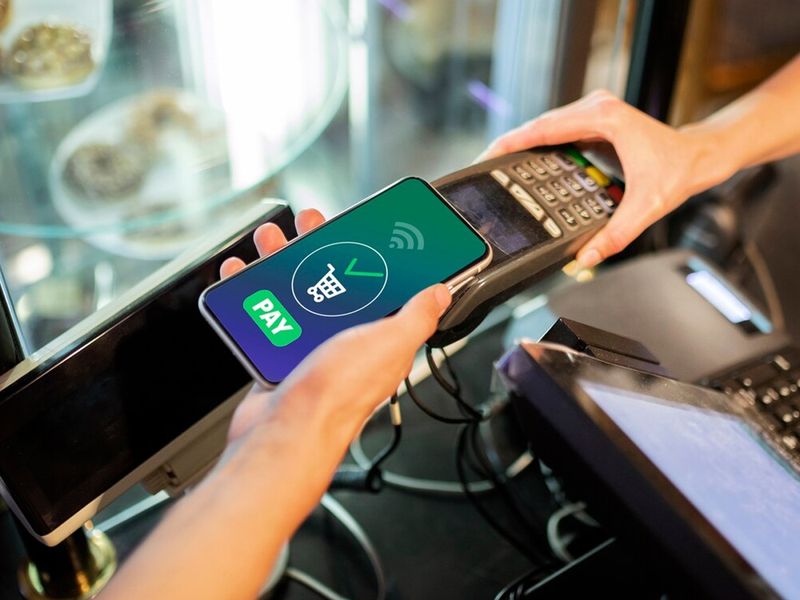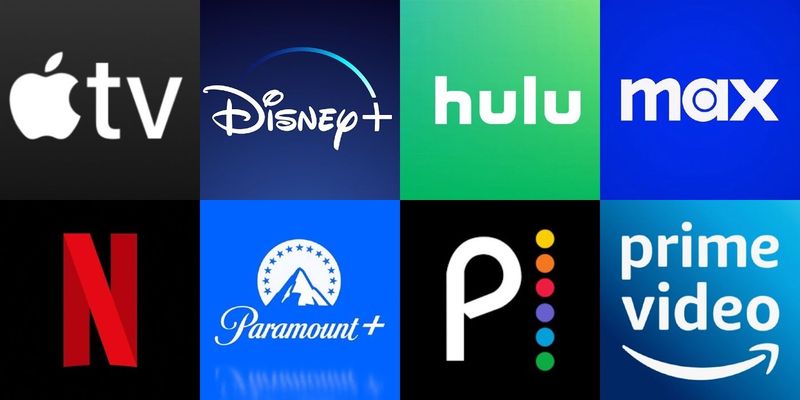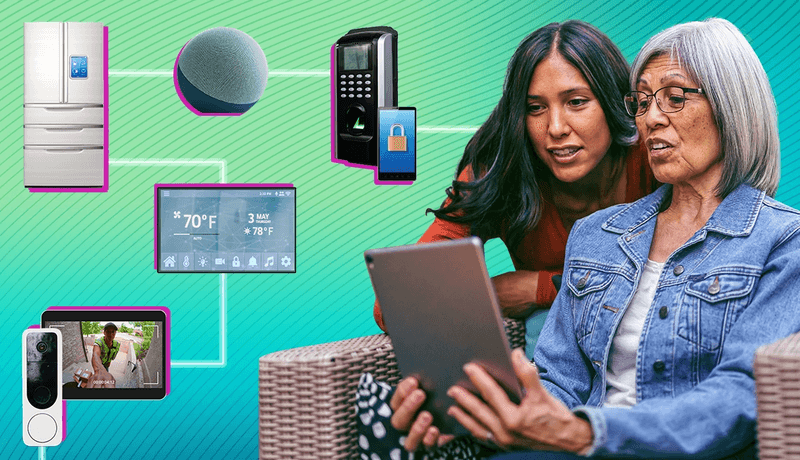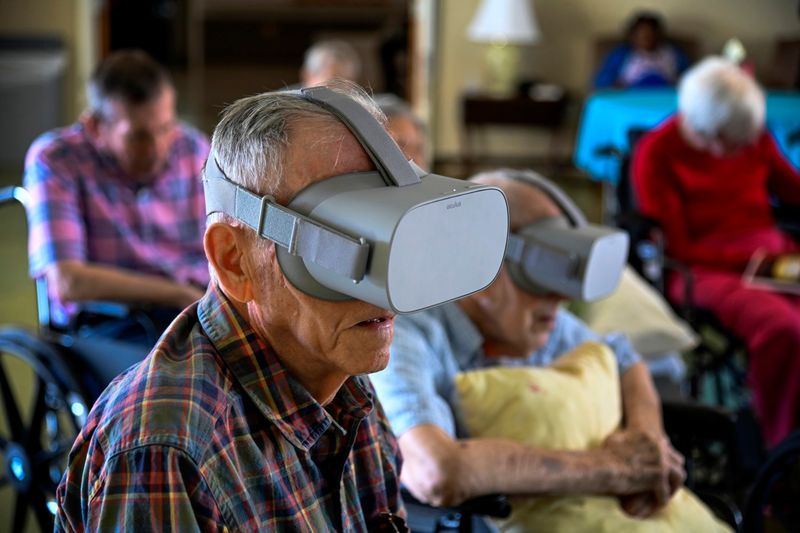The world is evolving rapidly, and with it, so are the trends that shape our daily lives. While younger generations are quick to embrace these changes, many baby boomers find themselves at odds with the latest developments. From technology to lifestyle choices, these trends often feel alien to those who grew up in a different era. In this blog post, we’ll explore 13 modern trends that baby boomers often find baffling or unnecessary. These insights reveal the generational divide and highlight the unique perspectives that each age group brings to the table.
1. Social Media Influencers

In the age of digital connectivity, influencers have emerged as powerful voices, yet many baby boomers remain skeptical of their impact. For those who value face-to-face interactions, the allure of online fame seems unfounded. Often, they question the authenticity of relationships built on likes and shares.
Moreover, the idea of earning a living through social media appears unconventional to a generation accustomed to traditional career paths. This skepticism extends to the value placed on products endorsed by influencers, creating a divide in consumer habits.
Ultimately, the influencer phenomenon remains a puzzle for many in the boomer cohort.
2. Cryptocurrency

Cryptocurrency, a buzzword for the tech-savvy, often leaves baby boomers puzzled. This digital currency, devoid of physical form, challenges traditional notions of money. With a landscape filled with blockchain jargon, the complexity can be daunting.
For a generation familiar with tangible cash and banking systems, the appeal of virtual coins is elusive. Concerns about security and volatility further compound their hesitation.
Despite its growing popularity among younger investors, cryptocurrency remains a topic of skepticism and confusion for many boomers, reflecting a broader uncertainty about digital finance.
3. Vegan Lifestyle

The vegan lifestyle, embraced for its ethical and health benefits, often perplexes those who grew up with traditional diets. Baby boomers, accustomed to meat and potatoes, find the shift to plant-based eating challenging.
The proliferation of meat substitutes and dairy-free options adds to their confusion. Many question the nutritional adequacy and taste of these alternatives.
Yet, the movement continues to grow, driven by environmental and health-conscious younger generations. For boomers, veganism represents a shift in culinary culture, one that diverges from familiar dietary norms.
4. Minimalist Living

Minimalism, a trend focused on simplicity, often clashes with the boomer mindset of valuing possessions accumulated over time. The appeal of decluttering and owning less is lost on those who treasure sentimental items.
Boomers, who grew up in an era of abundance, may view minimalism as a rejection of comfort and tradition. The movement’s emphasis on experiences over material goods can be hard to grasp.
However, minimalism’s rise reflects a generational shift towards sustainability and intentional living, leaving some boomers questioning its practicality.
5. Digital Payment Systems

In a world rapidly moving towards cashless transactions, digital payment systems are becoming the norm. Yet, for many baby boomers, this transition is fraught with uncertainty.
Familiar with cash and checks, the concept of mobile payments feels foreign. Concerns about security and privacy loom large, deterring many from adopting this technology.
Additionally, the ease and speed of digital payments can be overwhelming. Despite its convenience, the reluctance to embrace such systems underscores a generational gap in financial technology adoption.
6. Remote Work Culture

The shift to remote work has redefined the professional landscape, presenting challenges for those accustomed to traditional office environments. Baby boomers, who value face-to-face interactions, may struggle with digital communication tools.
The blurred boundaries between work and home life add to the complexity. For a generation that equates productivity with physical presence, remote work can seem less legitimate.
While the flexibility appeals to many, the cultural shift toward remote work highlights generational differences in work-life balance perceptions.
7. Fast Fashion

Fast fashion, characterized by rapidly changing trends and affordable prices, is a concept many boomers find perplexing. Growing up in a time when clothing was built to last, the disposability of fast fashion is hard to comprehend.
Additionally, the environmental impact of this industry raises ethical concerns. For boomers, quality and durability take precedence over trendiness.
The relentless cycle of new styles can be overwhelming, leaving many to question the value and sustainability of fast fashion’s allure.
8. Streaming Services

The proliferation of streaming services has revolutionized entertainment, yet it remains bewildering for some baby boomers. Accustomed to traditional TV schedules, the on-demand nature of streaming seems both liberating and confusing.
Navigating multiple platforms and subscriptions can be daunting. The plethora of choices often leads to decision fatigue, leaving some longing for simpler times.
Despite these challenges, streaming continues to dominate, reflecting a shift in how content is consumed across generations.
9. Online Dating Apps

The world of online dating, facilitated by apps, presents a new frontier for finding love. For baby boomers, this digital approach can feel impersonal and overwhelming.
The shift from traditional matchmaking to swiping right or left may seem superficial. Concerns over privacy and authenticity further complicate the experience.
Despite the convenience, the fast-paced nature of online dating can be off-putting for those who value deeper connections. This modern approach to romance highlights the evolving landscape of relationships.
10. Eco-Friendly Practices

Eco-friendly practices, driven by environmental concerns, are gaining traction, yet some baby boomers struggle to adapt. The emphasis on sustainability and reducing carbon footprints can seem daunting.
Boomers who grew up in a consumer-driven era may find the shift towards reusable products and zero-waste living challenging. The complexities of recycling and composting add to the confusion.
Nonetheless, the movement reflects a broader awareness of ecological issues, pushing for a greener future that spans generations.
11. Electric Vehicles

The rise of electric vehicles signals a shift in transportation, leaving some boomers wondering about its practicality. Accustomed to gasoline-powered cars, the concept of electric propulsion can be puzzling.
Concerns about range, charging infrastructure, and cost further complicate acceptance. For a generation that cherishes road trips, the idea of stopping to charge feels like a limitation.
Yet, the push for cleaner transportation persists, highlighting a generational divide in adapting to greener technologies.
12. Smart Home Devices

Smart home devices promise convenience and efficiency, but they pose challenges for those unfamiliar with technology. Baby boomers, who value simplicity, may find these gadgets unnecessary.
The integration of AI and automation in daily life can feel intrusive. Concerns about privacy and control further complicate their adoption.
Despite these hurdles, smart homes represent the future of living, showcasing a generational gap in technology acceptance and usage.
13. Virtual Reality

Virtual reality, a frontier of immersive experiences, often feels like science fiction to baby boomers. The technology’s ability to transport users to different worlds is both fascinating and bewildering.
For those accustomed to more tangible experiences, VR’s digital landscapes can seem surreal. The learning curve associated with using VR devices further adds to the hesitation.
Nevertheless, VR’s potential in entertainment and education highlights a new era of possibilities, bridging the gap between reality and imagination.

